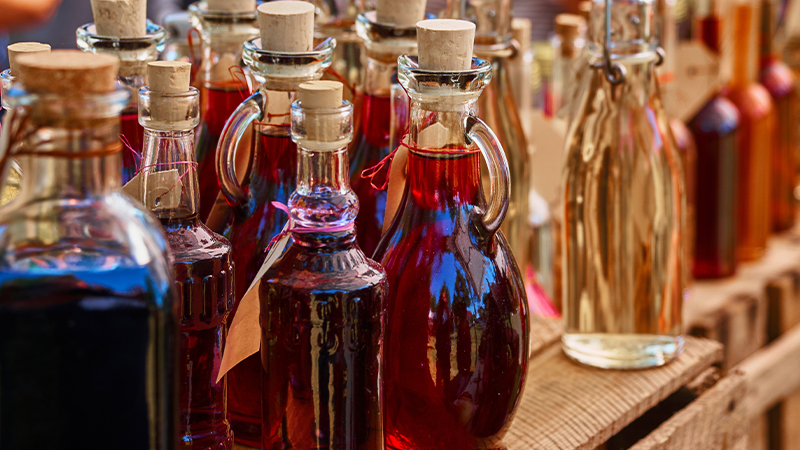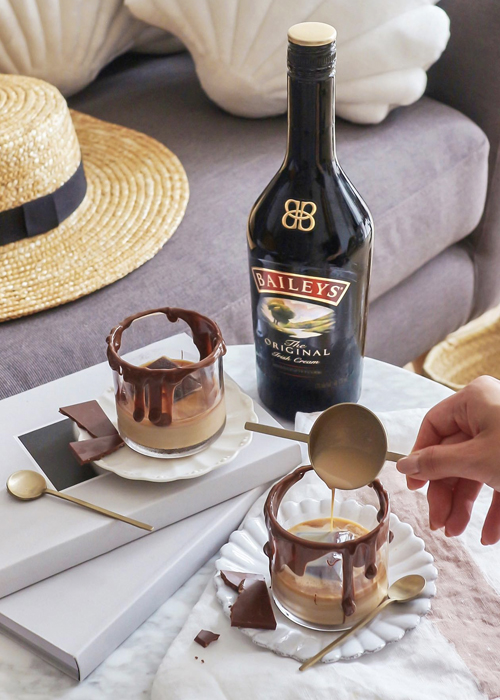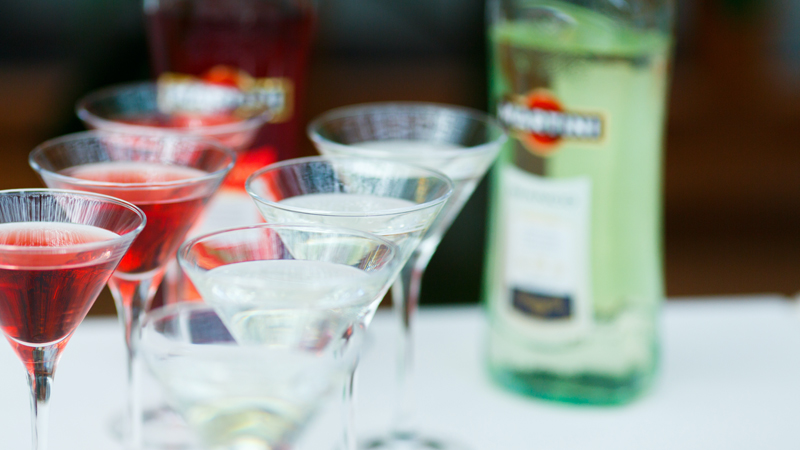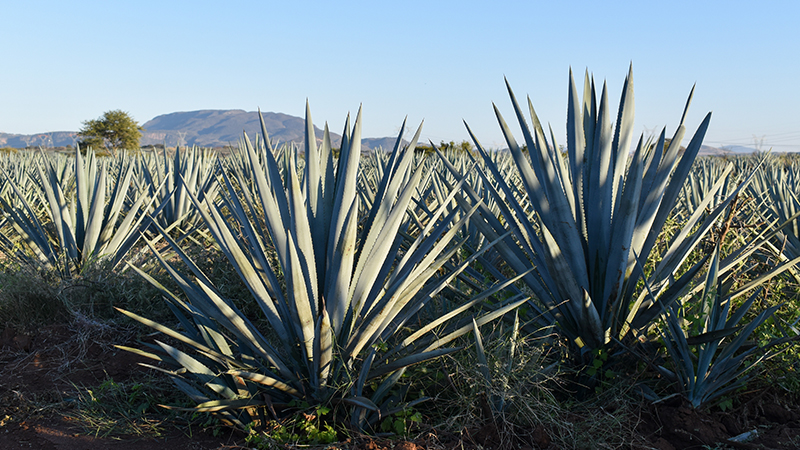The holiday hosting season is just around the corner, and with it comes an influx of bottles left behind by your guests to add to your bar cart. That means there’s no better time to get rid of a few dusty spirits to make room for something new. When looking at your bottles on display, it’s important to assess how long you’ve had each one and determine the quality of their ingredients before deciding which to keep and which to toss. For guidance on when it’s time to chuck a bottle, and which ones simply aren’t worth drinking in the first place, read on for the four bottles on your bar cart you should throw away.
Liqueurs that have been open for a year or more.

The shelf life of unopened liqueur is practically infinite, but be cautious of how long you hold onto that bottle after enjoying your first sip. As a rule of thumb, if a spirit contains any added flavorings, sugars, or fruit juices, it’s best consumed within one year of opening. Once unsealed, the spirits inside begin to oxidize and inevitably spoil if left unattended for too long. While one year is a general guideline for most opened liqueurs, if you’re sitting right at that mark and you’re not quite ready to toss the bottle, check for the telltale signs of oxidation before making a decision. Spoiled liqueurs, which typically contain a number of additives, often have crystals appearing around the mouth of the bottle, and their texture can become more viscous.
Don’t Miss A Drop
Get the latest in beer, wine, and cocktail culture sent straight to your inbox.
The cream liqueur that’s been sitting there for years.

Regardless of if the bottle has been opened or not, any cream liqueur, such as Baileys, will expire — and you won’t want to take your chances. If a bottle has been sitting on your shelf for over a year and a half and it’s open, toss it immediately. If it’s still closed, you have within two years of purchase to enjoy the beverage before it spoils — so drink up!
Three-month-old vermouth, especially if it’s actually been on your bar cart.

While vermouth certainly lasts longer than the average wine, it would be a mistake to believe that it stays fresh for as long as your other liqueurs and spirits. First and foremost, once opened, a bottle of vermouth should immediately be refrigerated in order to maintain as much freshness as possible. When stored properly, vermouth is best enjoyed within one month; after three have passed, it’s time to say goodbye.
Any tequila not labeled 100 percent Blue Weber agave.

When choosing a tequila to take up residence on your bar cart, it’s important to read the fine print. While brands are legally able to label their bottles as tequila as long as the spirit contains at least 51 percent agave, you’ll want to double check that yours is labeled “100 percent Blue Weber agave.” If this descriptor is not included, the spirit is considered a “mixto,” and it’s probable that it contains just 51 percent Blue Weber agave. The remaining 49 percent of the spirit is composed of additives such as sugar cane, artificial flavorings, and/or artificial colorings. For this reason, experts agree that 100 percent Blue Weber agave tequilas are the only expressions worth drinking, so it’s best to dump anything else.